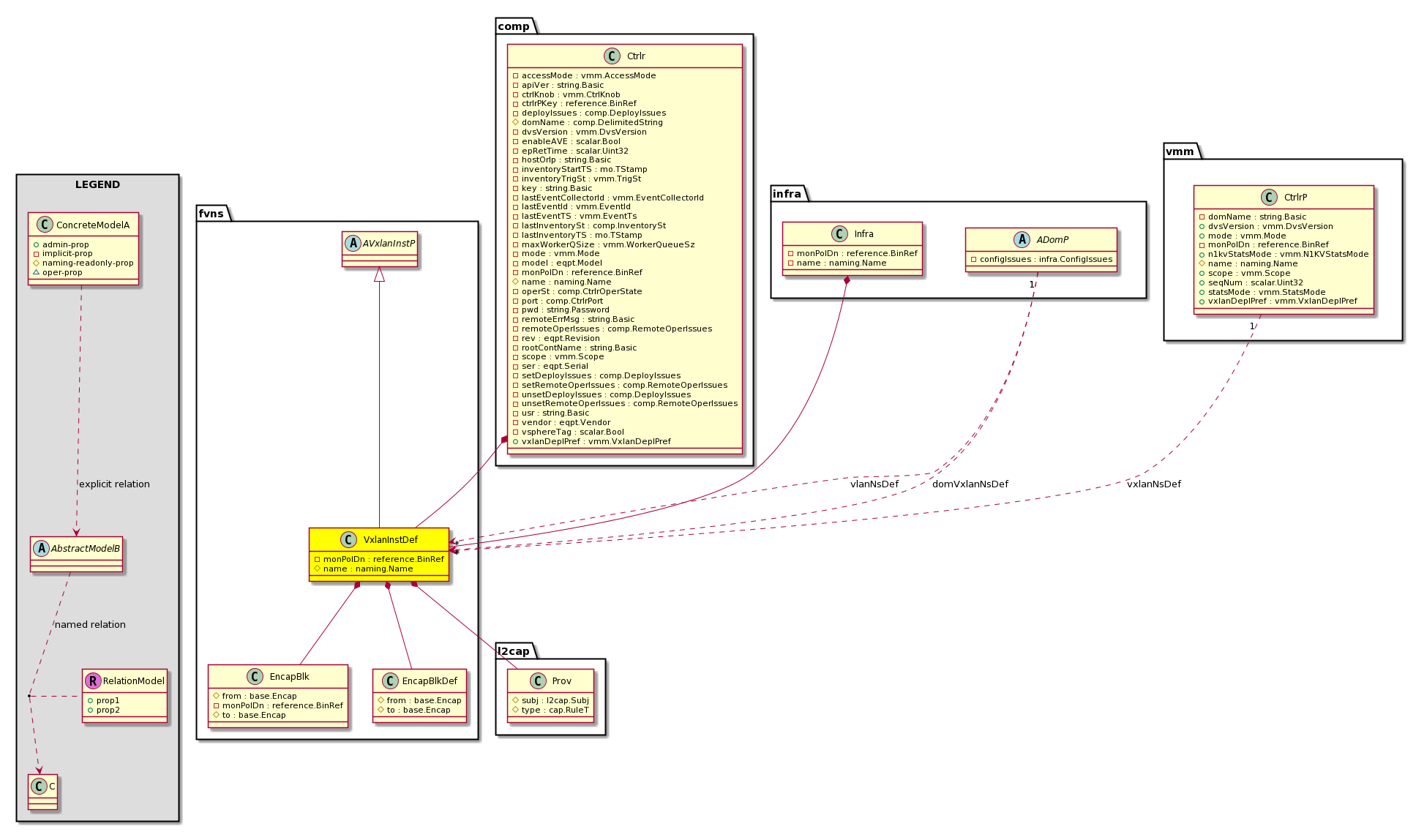![[V]](styles/eye.gif) |
fvns:VxlanInstDef The VxLAN instance definition. |
├
|
![[V]](styles/eye.gif) |
fault:Counts An immutable object that provides the number of critical, major, minor, and warning faults raised on its parent object and its subtree. |
├
|
![[V]](styles/eye.gif) |
fault:Delegate Exposes internal faults to the user. A fault delegate object can be defined on IFC (for example, for an endpoint group) and when the fault is raised
(for example, under an endpoint policy on a switch), a fault delegate object is created on IFC under the specified object. A fault delegate object follows the lifecycle of the original fault instance object, being created, modified, or deleted based on the changes of the original fault. |
├
|
![[V]](styles/eye.gif) |
fault:Inst Contains detailed information of a fault. This object is attached as a child of the object on which the fault condition occurred. One instance object is created for each fault
condition of the parent object. A fault instance object is identified by a fault code. |
|
├
|
![[V]](styles/eye.gif) |
fault:Counts An immutable object that provides the number of critical, major, minor, and warning faults raised on its parent object and its subtree. |
|
├
|
![[V]](styles/eye.gif) |
fault:Delegate Exposes internal faults to the user. A fault delegate object can be defined on IFC (for example, for an endpoint group) and when the fault is raised
(for example, under an endpoint policy on a switch), a fault delegate object is created on IFC under the specified object. A fault delegate object follows the lifecycle of the original fault instance object, being created, modified, or deleted based on the changes of the original fault. |
|
├
|
![[V]](styles/eye.gif) |
health:Inst A base class for a health score instance.(Switch only) |
|
├
|
![[V]](styles/eye.gif) |
tag:AInst The label instance, which is contained by the taggable object. |
|
|
├
|
![[V]](styles/eye.gif) |
fault:Delegate Exposes internal faults to the user. A fault delegate object can be defined on IFC (for example, for an endpoint group) and when the fault is raised
(for example, under an endpoint policy on a switch), a fault delegate object is created on IFC under the specified object. A fault delegate object follows the lifecycle of the original fault instance object, being created, modified, or deleted based on the changes of the original fault. |
|
├
|
![[V]](styles/eye.gif) |
fault:Delegate Exposes internal faults to the user. A fault delegate object can be defined on IFC (for example, for an endpoint group) and when the fault is raised
(for example, under an endpoint policy on a switch), a fault delegate object is created on IFC under the specified object. A fault delegate object follows the lifecycle of the original fault instance object, being created, modified, or deleted based on the changes of the original fault. |
├
|
![[V]](styles/eye.gif) |
fvns:RtVlanNsDef A target relation to the namespace policy is used for managing the Encap (VXLAN, NVGRE, VLAN) ranges. |
├
|
![[V]](styles/eye.gif) |
fvns:RtVxlanNsDef A target relation to the namespace policy is used for managing the Encap (VXLAN, NVGRE, VLAN) ranges. |
├
|
![[V]](styles/eye.gif) |
health:Inst A base class for a health score instance.(Switch only) |
├
|
![[V]](styles/eye.gif) |
l2cap:Prov An L1 capability provider that consumes a capability rule and tracks the software or hardware capabilities of the system. For example, this property provides you total and remaining count on the leaf. |
|

![[V]](styles/eye.gif)